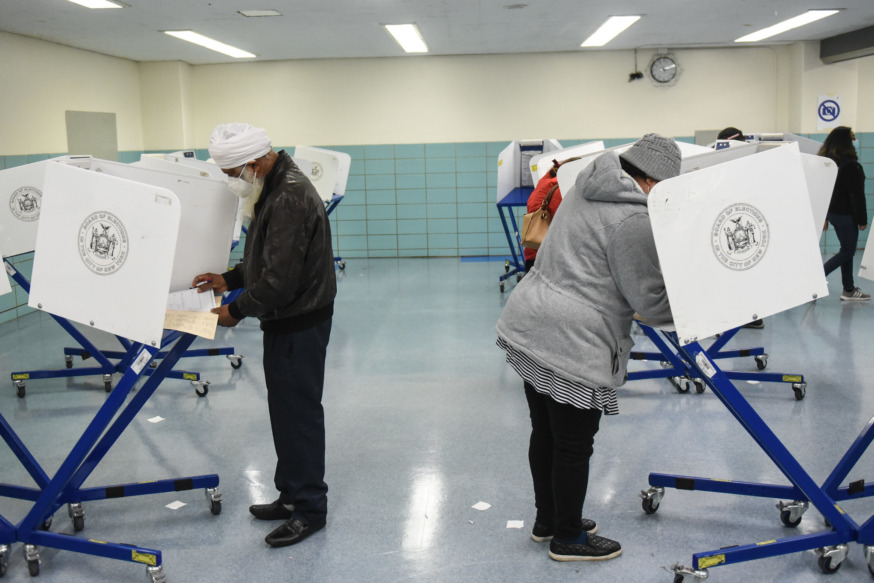
Voters cast their ballot at a polling site in Queens on Election Day Nov. 3, 2020. (Michael Appleton/ Mayoral Photography Office)
March 18, 2021 By Allie Griffin
More than $2 million in public campaign funds was distributed Monday among 33 candidates in Queens who are running to represent various districts in the borough.
The candidates, who each received varying amounts, were awarded the money by the NYC Campaign Finance Board (CFB) through the city’s matching funds program. The funds were distributed among city council candidates as well as two candidates for Queens Borough President.
The $2 million is just a small chunk of the roughly $9.4 million dispersed among 90 candidates citywide on Monday.
The matching funds program is meant to encourage candidates to fundraise and appeal to individual New Yorkers rather than special interest groups. Each month candidates file a personal financial disclosure detailing their fundraising efforts in order to qualify for the monthly payments.
Five Queens council candidates received the maximum match of $160,444 in this latest round, according to the CFB.
District 19 candidate Austin Shafran, District 23 candidate Jaslin Kaur, District 26 candidate Julie Won, District 29 candidate Avi Cyperstein and District 29 candidate Donghui Zang each earned the maximum funds permitted in the latest payment cycle.
During the last CFB payment cycle, eight Queens council candidates received the top amount and a total of 40 Queens candidates got $3.7 million split in varying amounts among their campaigns.
Candidates earn the money through the CFB matching funds program by meeting a two-part fundraising threshold. They must raise a specified amount in campaign donations from city residents and have a specific number of contributions from city, borough or district residents — depending on the office they’re running for.
For example, city council candidates must raise at least $5,000 from New York City residents, with only the first $175 contributed per resident counting towards the $5,000. They must also receive at least 75 contributions from residents of the district they are running to represent.
The CFB provides matching funds to candidates who meet the thresholds at a rate of $8 for every $1 received from New York City residents for a maximum payment per resident of $1,400 for city council and borough president candidates and $2,000 for citywide candidates.
The board has paid a total of nearly $48.8 million to candidates in the 2021 elections thus far. Candidates who didn’t qualify for matching funds this month will have another opportunity to do so on April 15.
After the election, candidates who have received public fund payments must return any leftover funds to the city. Each campaign must also provide detailed accounting of how the candidate spent the public money.
